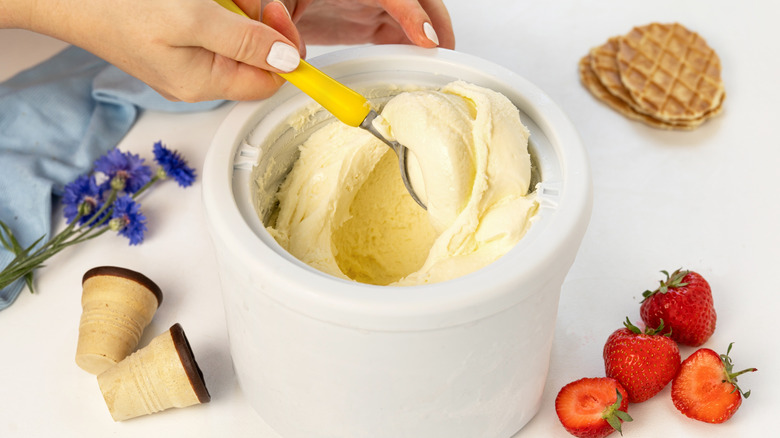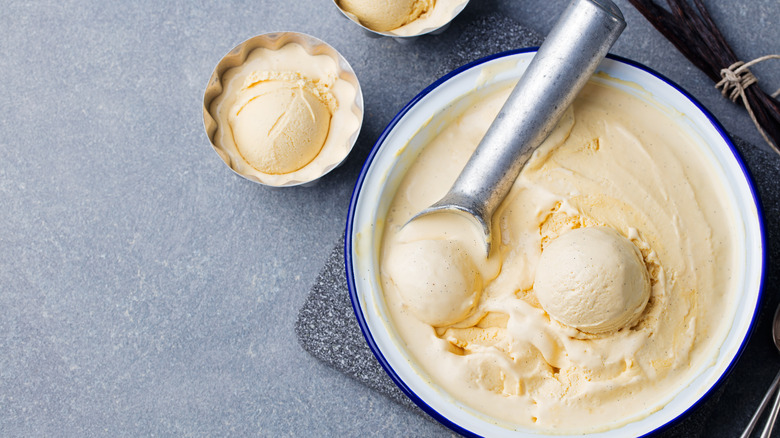Your Homemade Ice Cream Won't Freeze Because Of A Simple Machine Mistake
There are a lot of pros to making your own ice cream at home. Thanks to modern machines, there has probably never been an easier time to give it a try, and you can have a batch ready in just 30 minutes. The biggest plus, though, is that you can make any flavor you want. If you have a wild idea for a flavor combination, there's nobody to tell you no (basil ice cream, anyone?). The process still isn't entirely foolproof, of course, because there's a bit of science behind getting milk and cream to freeze into the perfect texture. The most important step, no matter which ice cream machine you use, is to always make sure that the freezer bowl is frozen solid before you put the ice cream base inside.
The secret to freezing ice cream in a machine all comes down to heat transfer. The bowl is the tool that freezes the liquid in the ice cream base. One of the primary functions of churning is moving the ice cream mixture across the surface of the metal bowl so that it can freeze. Once a layer is frozen, the paddles scrape it away so that another layer of mix can come down to temperature. So, if the bowl isn't cold enough to freeze the whole batch of ice cream, your carefully made custard will never properly form into scoopable ice cream.
Store the bowl in the freezer for perfect homemade ice cream
How cold does the bowl of the ice cream maker need to be? As cold as you can possibly get it. You want it so frosty that wet hands would stick to it, like when Schwartz got his tongue stuck to the flagpole in "A Christmas Story." That way, the ice cream base will start freezing the instant it comes into contact with the bowl and will stay cold long enough to freeze the whole batch.
Ice cream maker bowls are made with two layers of metal and filled with liquid similar to what's in an ice pack. At the very least, freeze the bowl long enough so you can't hear any of that liquid moving around when you shake it (this is often called the "slosh test"). This usually takes 12 to 24 hours, so freeze the bowl overnight. Even better, if you enjoy making ice cream at home, store the bowl for your ice cream machine in the freezer when you're not using it. That way, it's always ready to go.
With all that in mind, there are still several reasons why homemade ice cream might not freeze. If you're having trouble making the sweet stuff at home, try tweaking the amount of sugar in the recipe, lightening up on alcohol in boozy ice cream recipes, and always cooling the mix in the refrigerator before pouring it into the machine.


